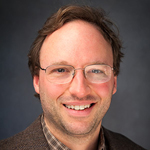In a well-intentioned but ultimately ignorant article published last week, one of The Lawrentian staff declared that the terms Zionism and anti-Zionism were “causing more trouble than they're worth” and that we should simply stop using them in political discussions about Israeli occupation and the Palestinian struggle. For an American audience who is already quite unaware of the immense urgency of Palestinian liberation, saying a statement like that is just tightening the blindfold that American audiences are so used to wearing when it comes to Israel-Palestine and the American sponsorship of Palestinian ethnic cleansing. I’m here to take that blindfold off and show you exactly what Zionism is and how it has single-handedly caused the apartheid state, which renders Palestinians second-class citizens in their homeland.
This edition of The Lawrentian is the last for the 2020-21 school year and, with that, there is inevitable change....
Dear Editor,
I have spent this year at Lawrence fighting for academic disability accommodations. I need them due to a diagnosed mental health condition. I have had them since the fall of 2018. When the pandemic hit, and Lawrence switched to distance learning, the accommodations I needed changed. Interacting and communicating over Zoom is extremely difficult for me. I requested new, temporary accommodations to deal with this issue and was vehemently denied by the accommodations coordinator who told me that my accommodation request “was not a reasonable request.”
In my Musicology 492 course on music and globalization, our class discussions have often critically examined the processes of globalization, cultural exchange and media ownership. This is a class I would highly recommend to anyone interested in Global Studies or Musicology since Professor Downing does a great job at exposing students to musicians from around the world and their history. This is what I shared in my class's media sharing forum comparing a documentary we watched in class, Afghan Stars, to the ongoing massacre of Palestinians at the hands of the Israeli and American state:
The morning after the dire news of Lawrence shutting down last spring, a friend of mine told me that she had an idea. We walked to the Walgreens on College Avenue, where she led me to something I had not seen in years—a disposable camera. Carrying our cameras with us throughout our daily routines, we documented our last few days on campus together and vowed not to develop the film until next fall. The low quality, plastic device became a time capsule that I treasured for the next six months, waiting eagerly to unveil the photos that captured moments I had long forgotten about.
Since I turned eighteen, I have spent the last three summers working at a nearby paper mill. For me, that meant working three to four 12-hour shifts (no breaks) for 36 to 48 hours a week, for two weeks of days and two weeks of nights. My schedule was always Tuesday, Wednesday, Saturday, Sunday, Monday, Thursday, Friday, 6 am to 6 pm, or 6 pm to 6 am. In short, it was a lot—but I felt like I should give these time frames to explain exactly how it has consumed the summers of 2018, 2019 and 2020 for me. While I can be bitter about this, I weirdly do love it and think fondly of it (but based on my early Variety articles, I’m pretty sure I depict it as Stockholm Syndrome).
Dear Reader,
It has come to my attention that I have not actually introduced myself to the Lawrence comunity since taking on the role of editor-in-chief; I also recently realized that this was something that my predecessors did. So, my apologies for not writing this sooner!
I’m not someone who really grew up with Star Wars — my parents were never big fans — and I was really into Harry Potter for the majority of my childhood. However, before the sequels started to come out in high school, I decided that I’d watch the original trilogy for the first time. I did, admittedly, think the movies were a bit cheesy at times, but something sucked me in. I liked this universe, and I liked how it differed from Harry Potter.
Photo provided by Steven Wulf. People ask me a lot of philosophical questions, ranging from “what the hell are you...
I have developed a deep and passionate relationship with tomato soup this year. Seriously. This may sound kind of ridiculous, but tomato soup has made me feel better countless times throughout this school year. There is something so fantastically comforting about tomato soup. I know soup can’t save the world, but sometimes something as simple as a bowl of tomato soup makes me feel like I can conquer anything.

